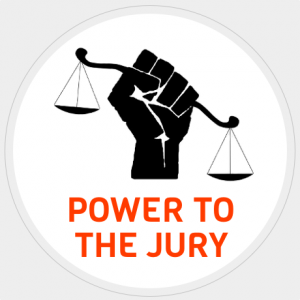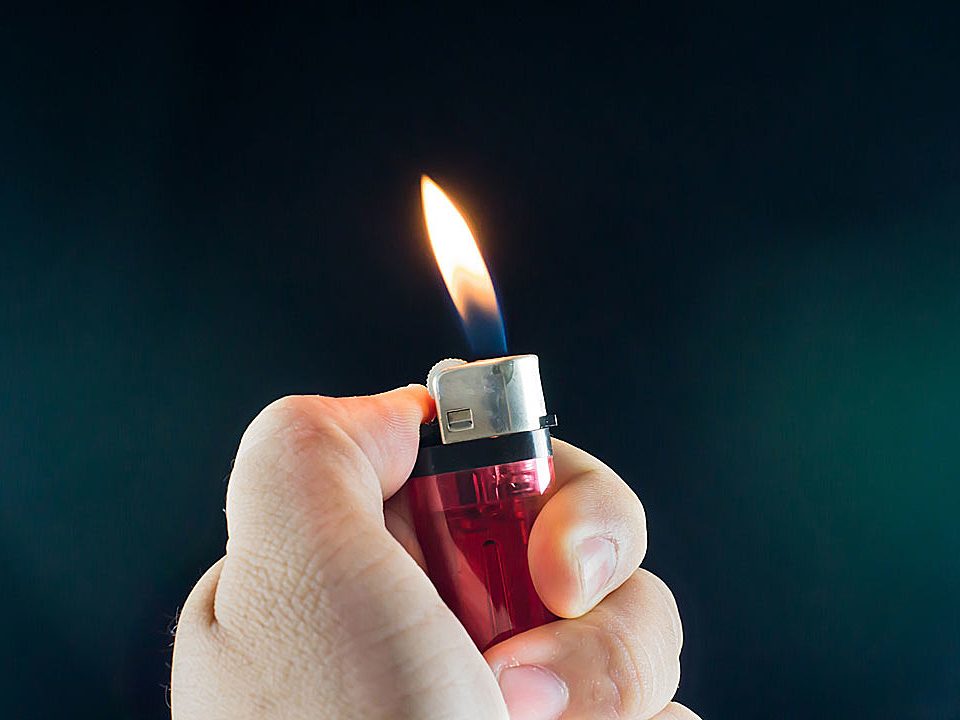An Unknown and Underused Power
An Unknown and Underused Power
 Shortly after I opened my law practice in January 1983, I was contacted by a pro-life activist who had been arrested at the local abortion clinic. After his arrest, a criminal case was filed against him charging him with criminal trespass to property. I agreed to represent him and was able to get the case dismissed because, at the time of his arrest, he was standing on a public sidewalk near the clinic.
Shortly after I opened my law practice in January 1983, I was contacted by a pro-life activist who had been arrested at the local abortion clinic. After his arrest, a criminal case was filed against him charging him with criminal trespass to property. I agreed to represent him and was able to get the case dismissed because, at the time of his arrest, he was standing on a public sidewalk near the clinic.
It didn’t take very long for word to get out that I was a Catholic lawyer who was willing to assist individuals who had been arrested at the clinic. One of the people who contacted me was Jerry Smith, a young man who had decided that he was going to do everything in his power to put a stop to the killing of unborn children. Most of my initial experience in trying cases in front of juries came from my representation of Jerry.
There was one occasion when Jerry walked into the clinic, sat down on a chair in the waiting room, and handcuffed one of his wrists to the chair he was sitting in. The waiting room was full of women who had made appointments for abortions. Jerry proceeded to calmly talk to the women in an attempt to persuade them to change their minds and give their unborn children a chance to live.
When the police arrived, they tried to convince Jerry to voluntarily leave the clinic. Of course, he refused. The police were unable to remove the handcuffs so they carried him and the chair he was sitting in out of the clinic. Once they were outside, they arrested him, loaded him into a paddy wagon, and took him to the county jail to be booked.
Like all the other Jerry Smith cases, we requested a jury trial. Jerry’s favorite saying was, “Harry, if we win we win and if we lose we win. When we do God’s work, we always end up being winners.” We did God’s work and ended up winning by losing. The jury convicted Jerry of resisting arrest and criminal trespass to property.
During the trial, I wanted to use a defense that is commonly known as the “necessity defense.” When the necessity defense is used, evidence is presented that the commission of a crime was necessary in order to prevent a greater harm from occurring. In a sane world, I would have been allowed to present such a defense because the mere act of trespassing and resisting arrest would have been considered necessary to prevent the killing of a human being.
The trial judge ruled that I was not allowed to present any evidence or argue to the jury that Jerry Smith’s actions were necessary to save the life of an unborn child. The reason the judge ruled against me was because there was no precedent for the use of such a defense in a similar case, and the necessity defense was not a valid defense because abortion was legal.
Another strategy I tried to use in the case was to argue for jury nullification. Most people don’t know this, but a jury has the right to disregard the law and find a person not guilty of a crime, even though the members of the jury may believe that the person actually committed the crime. In such a case, the jury has the right to nullify the law in order to find a person not guilty.
Jury nullification was a legal concept that preceded the founding of our country. Prior to the American Revolutionary War, colonial juries frequently used their nullification power in criminal cases that were filed against local citizens by British attorneys. Jury nullification was also common during the 1850s, when local juries in the northern states acquitted men who were charged with the crime of violating the federal Fugitive Slave Act.
Jury nullification again became popular during the early 1930s when juries in courtrooms throughout the United States refused to convict individuals who were charged with committing the crime of producing, selling, or transporting alcoholic beverages. At that time, there was a constitutional ban on the sale, production, importation, and transportation of alcoholic beverages in the United States. The ban was commonly referred to as “prohibition.”
Prohibition became the law of the land in 1920, after the ratification of the 18th Amendment to the U.S. Constitution. By the early 1930s, there was a strong grassroots movement to end prohibition. On December 5, 1933, the 18th Amendment was repealed with the ratification of the 21st Amendment to the U.S. Constitution. The 21st amendment reversed the federal prohibition against the sale, production, importation, and transportation of alcoholic beverages.
Today, jurors still have the absolute right to find a person not guilty by nullifying the law, but judges routinely forbid lawyers from informing them that they have that right.
In the Jerry Smith case, the trial judge refused to allow me to inform the jury of their right to nullify the law. If I would have violated the judge’s order, he could have declared a mistrial and forced us to retry the case. He could have also held me in contempt of court and punished me for my behavior. A few possible punishments would include time in the county jail, a suspension of my law license, or a suspension of my right to appear in a Peoria area courtroom on behalf of my clients.
I recently received a pamphlet from a local pro-life activist who I’ve known for more than 25 years. The pamphlet suggested that the best remedy for dealing with the recent Supreme Court decision concerning the legalization of same-sex marriage would be to try to convince local judges to violate the law. In my opinion, that’s never going to happen.
All judges take an oath to uphold federal and state laws. If judges were to intentionally violate one or more laws, they would be subject to the same types of punishment I would have been subject to if I had intentionally defied the judge’s order in the Jerry Smith case.
As we continue to see various federal judges — including our Supreme Court justices — arbitrarily change our laws in favor of sinful and immoral behavior, I anticipate that there will eventually be an event that triggers the public to become so outraged that the jury nullification process will become widely known and promoted through social media.
At that point in time, we will begin to see renegade jurors who will, on their own, insist that a person they feel has been unjustly charged with a crime be found not guilty, regardless of what the law is.
It’s unfortunate that we have gotten to the point where law-abiding citizens are beginning to feel that they have no other choice but to take the law into their own hands.




1 Comment
DEAR HARRY AND GEORGETTE –
AS I READ YOUR INFORMATION ABOUT THE POWERS OF THE SUPREME COURT AND ITS MISUSE BY THEM, I’M MORE THAN EVER CONVINCED THAT THE MAIN RECOURSE WE HAVE IS PRAYER – PRAYER TO OUR TRIUNE GOD – WHO CREATED US, REDEEMED US AND SANCTIFIED US, ALL IN ONE SUPREME ACT. WE HAVE MORE POWER WITHIN US, GIVEN US FROM THE TRINITY, THAN ANY SUPREME COURT CAN MATCH! OUR FAITH IS OUR BEST WEAPON. SO PRAYERS CONTINUE TO COME YOUR WAY, DEAR FRIENDS! GOD BLESS YOU BOTH! SISTER ROBERTA